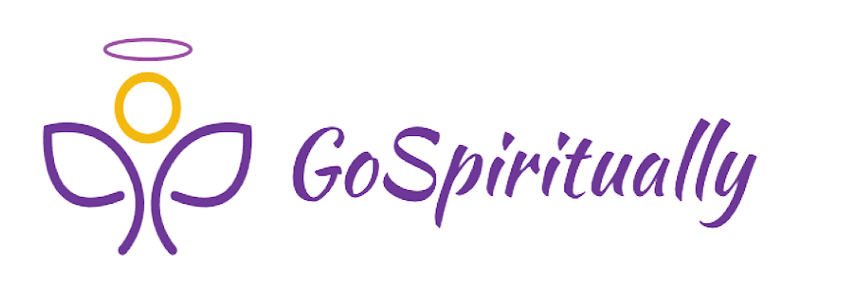Creativity and spirituality have always been interwoven, right from the ancients to the present times. Most cultures and traditions consider creativity-whether in painting, writing, dancing, or composing music-as one way of representing spiritual truths, getting closer to divinity, or looking at one’s inner self.
Creativity is the channel carrying deeper and more profound life expressions. But what is the actual link that exists between creativity and spiritual expression, and why is it such an indispensable part of so many spiritual journeys?
Let’s explore exactly how creativity intersects with spiritual activities, why some traditions view creativity as a godliness in itself, and how spirituality can lead to unlocking our creative potential.
Key Takeaways
- Creativity bridges the gap between the internal self and spiritual expression.
- Most spiritual traditions regard creativity as either a sacred act or a divine gift.
- Intuition plays an important role in releasing creative flow, too.
- Spiritual activities such as meditation and prayer can overcome creative blocks.

Understanding Creativity from a Spiritual Perspective
Creativity is not simply about engaging in something new or interesting. At the spiritual level, it is mostly seen as a bridge into the deeper and more profound parts of the self. It has to do with connecting us to the essence of who we are, to the universe, or to a higher power. In many spiritual traditions, creativity is seen as a sacred act-as participation in the divine energy of creation itself.
In this manner, creativity often receives a spiritual dimension whereby thought, feelings, and insight are filled to the brim with expression related to one’s spirituality. A lot of people tend to feel that during the creation process, something larger than themselves is being channeled-the universe, God, or their soul.
Some key points that delineate the spiritual nature of creativity include:
It is through this creativity that we connect with our deeper selves. Many times, the act of creation is the means through which ideas, thoughts, and even feelings that we never knew we had become realized. This can bring growth into one’s self, as well as a deeper understanding of one’s spiritual path.
Creativity can be a calling, like a spiritual drive deep inside to create-anything from art, music, and writing to other means of expression. Many times, this is instinctive; it is like one is being called on to achieve a part of their spiritual purpose.
The flow of creativity has often been compared to meditation. Certainly, when one is “in the zone,” or in a state of flow, while creating, the mind quiets and one becomes fully present in the act of creation, thus leaving a sense of peace and unity with the universe.
Also Read: The Importance of Balance in Spiritual Growth
How Different Spiritual Traditions Interpret Creativity
In different spiritual traditions, creativity takes on a series of meanings such as a view of divine power or maybe a path toward spiritual enlightenment. Let us take a glimpse into a few spiritual traditions where creativity is understood/valued differently:
Hinduism
Sees creativity intrinsically connected with the divine creative act. The god Brahma as a creator is the ultimate creative force, and his acts are reflected in the creating acts of humans. This creative expression can be realized through art, music, or craftsmanship as an homage to the divine and connecting with the universe.
Buddhism
Believe creativity is a manner of mindfulness for personal development. The act of creation-whether by painting, writing poetry, or constructing a sand mandala-becomes one of meditation. It’s not the product that matters, but rather the experience of being fully present in the act of creating. It is here that this mindfulness helps them connect with their inner self and leads them to spiritual clarity.
Christianity
Creativity is heavily emphasized in Christianity, as it were, for God’s creation. Humans are considered made in the image of God; one way that is manifested is through creating. Many Christian artists, writers, and musicians regard their work as one form of worship in giving praise to God and expressing faith.
Indigenous Beliefs
For many indigenous cultures, creativity is considered a type of sacrament that connects them to the natural environment and the spirits that are within them. Many times, art, music, and stories have been done to appease and give homage to ancestors, spirits, or elements of nature. In contrast, the idea of creative expression is portrayed as a way of creating balance and harmony with the universe.

Creativity And Spiritual Expression
One of the most direct methods of integrating creativity and spirituality is through spiritual expression. People employ creativity, such as painting, writing, and music, to express their spirituality or experiences very often.
In the creative process, they are enabled to express what might otherwise be hard to put into words: they make the abstract concrete, the emotional tangible, and the deeply personal representational.
This is seen through examples in creativity as spiritual expression.
1. Visual Arts: Artists express their spiritual beliefs and feelings through art. Religious paintings and sculptures were used to express faith and devotion. In other situations, abstract arts have been used to express spiritual experiences or feelings which are beyond the expression of language.
2. Music: For centuries, music has been a medium of spiritual expression. In most religions, it is the highlight of worship and meditation. Whether in the form of holy chants, hymns, or instrumental, it connects an individual to the divine most of the time. Many people mentioned writing or performing music as a means to express their spiritual insights and resulting emotions.
3. Writing can also be an effective means to express oneself spiritually through poetry, fiction, or even nonfiction. Many writers use spirituality in their work, at times about the meaning of life, the nature of the soul, or the pursuit of enlightenment. Writing makes it possible for people to put their spiritual journey into words and thus share their thoughts with others.
The Role of Intuition in Creative Flow
It is often highly linked with intuition. Many spiritual traditions teach that intuition is a powerful spiritual tool-one that can help us access deeper knowledge and insights that we may not consciously know. Intuition often plays a pivotal role in the creative process for formulating new ideas or finding inspiration.
Intuition is that inner voice or gut feeling that drives us through creation. This may be to decide on colors to use in a painting, words to write in a poem, or even a melody to be played on a musical instrument. For most people, this following of intuition feels spiritual, almost guided by something higher or by one’s own self.
– Tapping into intuition: Often, once we stop overthinking about creating something, the more we can create. This is why so many spiritual practices-meditation, mindfulness, or prayer-are helpful in bringing creativity into being: they quiet the mind and open us up to the inner guidance.
– The Role of Meditation: One of the finest ways through which one can tap into one’s intuition and experience a rise in creativity is meditation. Meditation ensures that the mind is free of distractions, connecting us with our inner selves so that new ideas may emerge. In many instances, this is deeply spiritual because creativity becomes a natural flow rather than a contrived effort.
Overcoming Creative Blocks Through Spirituality
Most anyone who has ever attempted any form of creative work has experienced some sort of block. Blocking is frustrating, but for many people, spirituality offers powerful means to get past those blocks and reconnect with their flow. Using spiritual tools, such as meditation, prayer, or ritual, may serve to break blocks and return individuals to their creative flow.
– Meditation: This is one of the best ways to get rid of creative blocks. Meditation has an effect on the mind to soothe it and rid it from stress, which in turn allows getting back in touch with one’s inner self and lets the creativity flow once again.
– Prayer: For people who believe in some higher power, prayer is a powerful tool to help them overcome creative block. While praying, one may seek guidance or inspiration from above when he feels stuck and ask for divine help in finding new ideas or solutions.
– Spiritual rituals: Most traditions have a variety of means through which particular rituals are intended to inspire creativity or break down barriers. Some people light a candle, burn incense, or say special prayers at the beginning of a creative project. By engaging in these actions, they also make sacred space for the creative expression.
Spiritual Symbols In Creative Expression
These most often play an important role in creativity because they carry deep meanings that words alone cannot. Spiritual symbols, through visual arts, music, or the written word, help in the transmission of thoughts and emotions related to the artist’s spiritual beliefs.
Some common spiritual symbols include:
– The lotus flower, for spiritual awakening and purity, mostly under Eastern traditions like Hinduism and Buddhism.
– The cross is a very significant symbol among Christians, as it depicts faith, sacrifice, and redemption. – The eye is an important element in most spiritual works, but the “eye of providence” essentially means divinity and protection when even referring to other spiritual insight.
Spiritual symbols also have personal meaning in that they are ideas and experiences of the individual. Yet, for the most part, they have collective meanings in the larger spiritual community. It is this duality that invests spiritual symbols with their special power to speak to both the individual and the collective in creative expression.

Conclusion
There is so much that actually links creativity to spiritual expression. The creative act serves as one method people tour and build on their spiritual experience, feelings, and lessons.
Many spiritual ways consider creativity a divine job-one through which a person may link with divine energies or his inner being. In an artistic or musical form, or by way of writing, the use of creativity becomes a strong tool for deepening spiritual insights.
Check Out: Understanding the Concept of Synastry in Relationships
Frequently Asked Questions
How does creativity relate to spirituality?
The creativity allows the persons to explain spiritual beliefs and feelings that usually reach to deeper parts of themselves which they can’t articulate in any other way.
Are spiritual practices helpful to spur creativity?
Yes, it is. Actions like meditation, mindfulness, and prayer open one’s mind to new creative ideas.
Why do so many spiritual traditions emphasize creativity?
To many of these traditions, creativity is either part of divine creation or a manner in which one may connect with the spiritual world.
How might spiritual symbols enhance the creative expression?
Spiritual symbols are infused with meanings that deepen the expression for the artist of spiritual ideas and feelings that are usually complex.








